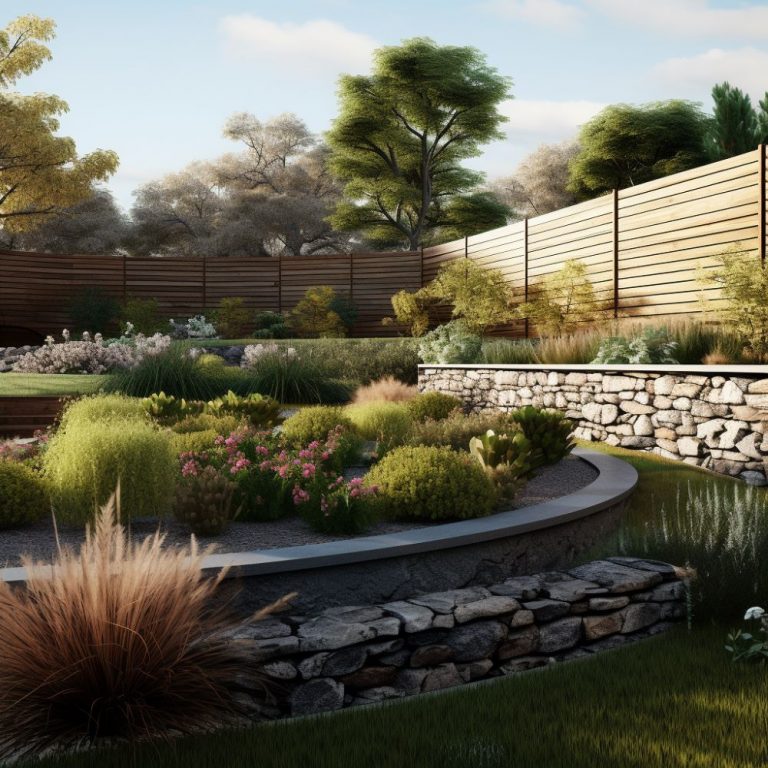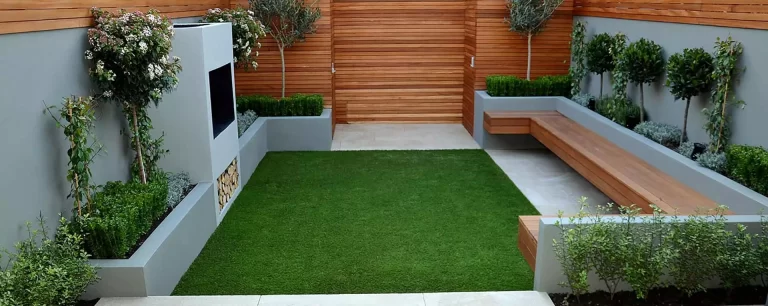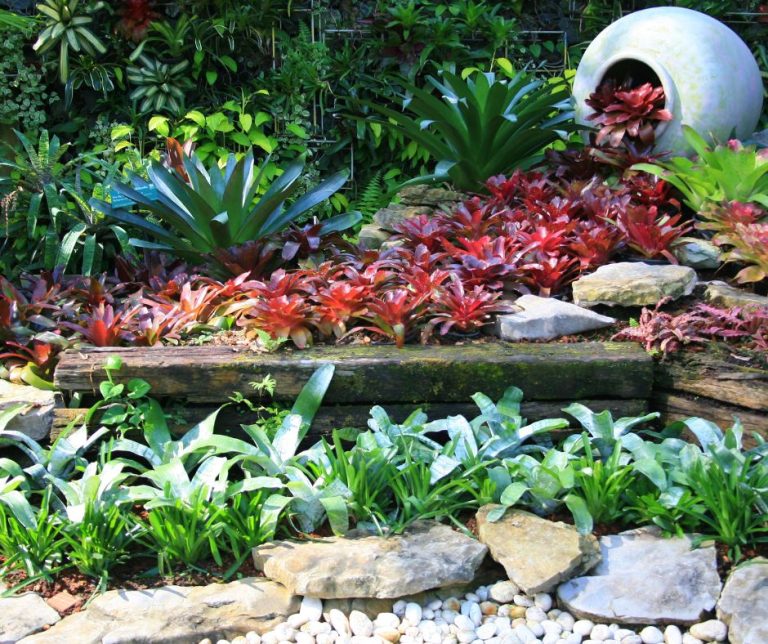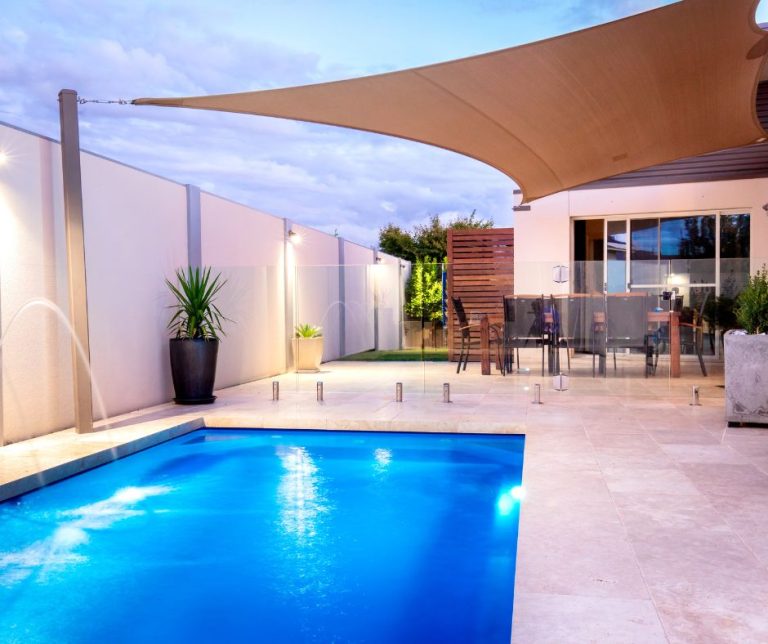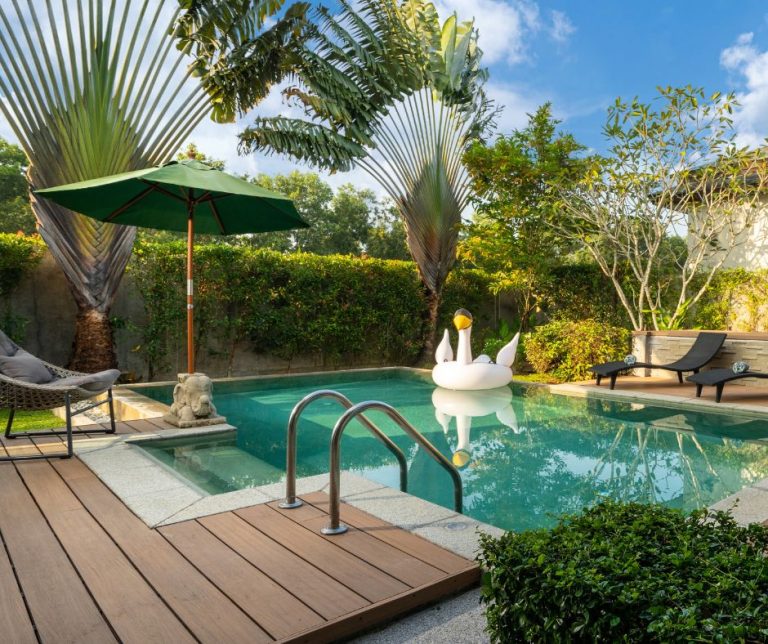Deck vs Pavers For A Pool Surround?
Creating the Perfect Pool Surrounds
When it comes to landscaping your swimming pool area, pool surrounds play a significant role in enhancing both the aesthetic appeal and functionality of the space.
The two most popular options we do at Oasis Landscaping projects are decks or pavers.
Let’s take a look at the pros and cons of each one.
The Importance of Pool Surrounds
Pool surrounds serve multiple purposes. They need provide safe and easy access into the pool and provide an area for poolside activities, such as lounging, sunbathing, and entertaining.
A well-designed pool surround can enhance the overall appearance of your pool area, complementing the surrounding landscape and architecture.
Choosing the right surface is important as it affects not only the visual appeal but also factors like durability, maintenance, and safety.
Comparing Deck and Pavers
Both decks and pavers offer unique advantages and considerations for your pool surround.
| Criteria | Deck | Pavers |
|---|---|---|
| Aesthetics | Decks can lend a warm and inviting feel to the pool area. They come in various materials such as hardwood, composite, and even PVC, offering a range of styles and finishes. Decks can change colour as they get weathered | Pavers provide a wide selection of design options, including natural stone, concrete, and clay. They can create a sophisticated and elegant look, with choices ranging from sleek modern designs to rustic and traditional styles. |
| Durability | Decks made with high-quality materials can be durable and long-lasting. However, they may require regular maintenance, such as oiling, staining, sealing, and periodic repairs. | Pavers are known for their durability and resistance to wear and tear. They can withstand heavy foot traffic, extreme weather conditions, and pool chemicals without significant damage. |
| Maintenance | Decks generally require regular maintenance, including cleaning, staining, and sealing to protect against moisture, sun damage, and mould growth. | Pavers are relatively low maintenance. Regular cleaning and occasional resealing can help maintain their appearance and prevent weed growth between the joints. |
| Safety | Decks can become slippery when wet, which can pose safety concerns. Proper installation and the use of non-slip materials or coatings can help mitigate this risk. | Pavers, especially those with textured surfaces, provide better slip resistance. They offer a safer pool surround option, reducing the likelihood of accidents due to slipping. |
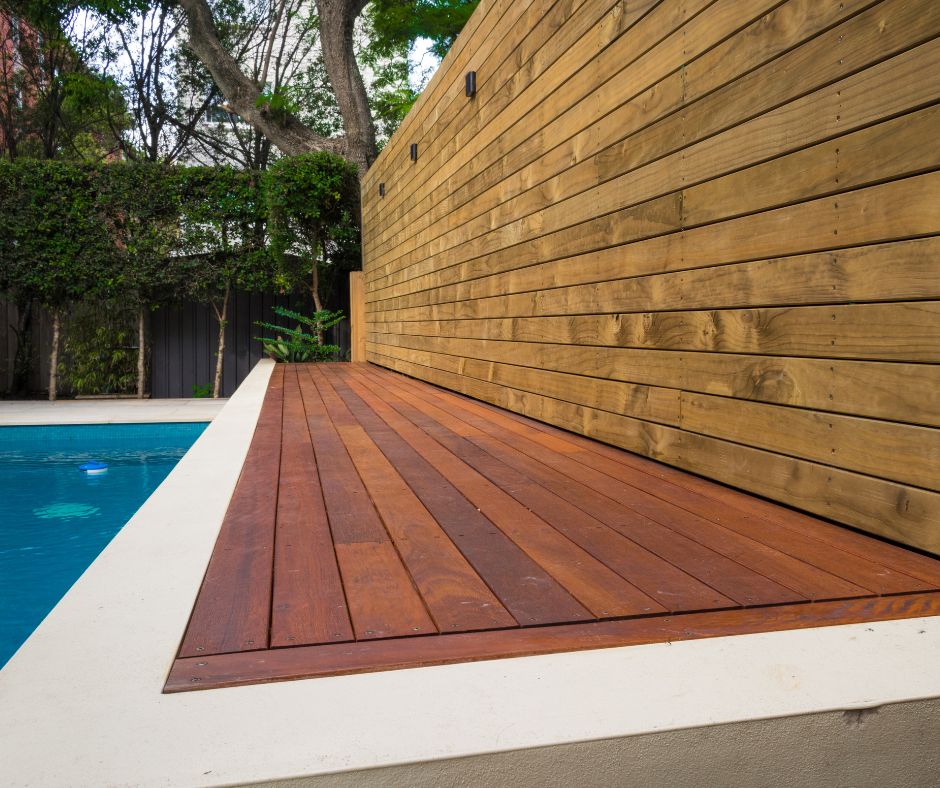
Decking for Pool Surrounds
Decking is always a popular choice for pool surrounds due to its versatility and it’s good looks. Whether you opt for hardwood like a merbau deck or choose a composite deck, timber decks offer several advantages when it comes to creating a beautiful poolside area.
Pros of Using a Deck
- Versatility: Decks can be customised to fit any pool shape or size, allowing for greater design flexibility. Whether you prefer a traditional or contemporary look, decks can be tailored to suit your personal style.
- Comfort: Decking materials tend to be more comfortable underfoot compared to hard surfaces like concrete or pavers. This is especially beneficial when walking barefoot around the pool area, providing a more enjoyable experience.
- Visual Appeal: Decks offer a natural and inviting aesthetic, particularly when using real timber. The warmth and natural beauty of timber can enhance the overall look of your pool area, creating a welcoming space for relaxation and entertainment.
- Ease of Installation: Deck installation is generally quicker and less labor-intensive compared to other pool surround options. This is a benefit if you need the work done quickly.
Cons of Using a Deck
- Maintenance: Decks typically require regular maintenance to ensure their longevity and appearance. This can include annual oiling, staining or sealing, as well as routine cleaning to prevent the growth of mould or mildew. Neglecting maintenance can lead to the deterioration of the deck over time.
- Durability: While decks can provide a beautiful pool surround, they may not be as durable as other materials, such as concrete or pavers. Wooden decks, in particular, are susceptible to rot, warping, and splintering if not properly maintained or protected.
- Cost: The cost of installing a deck can vary depending on factors such as the type of timber or composite material chosen, the size of the deck, and the complexity of the design. Decks can be more expensive to install compared to some other pool surround options, such as pavers.
- Slippery Surface: Depending on the decking material used, decks can become slippery when wet. This can potentially pose a safety risk, especially if you have children or elderly individuals using the pool area. It’s important to choose decking materials with slip-resistant properties or consider adding anti-slip coatings for added safety.
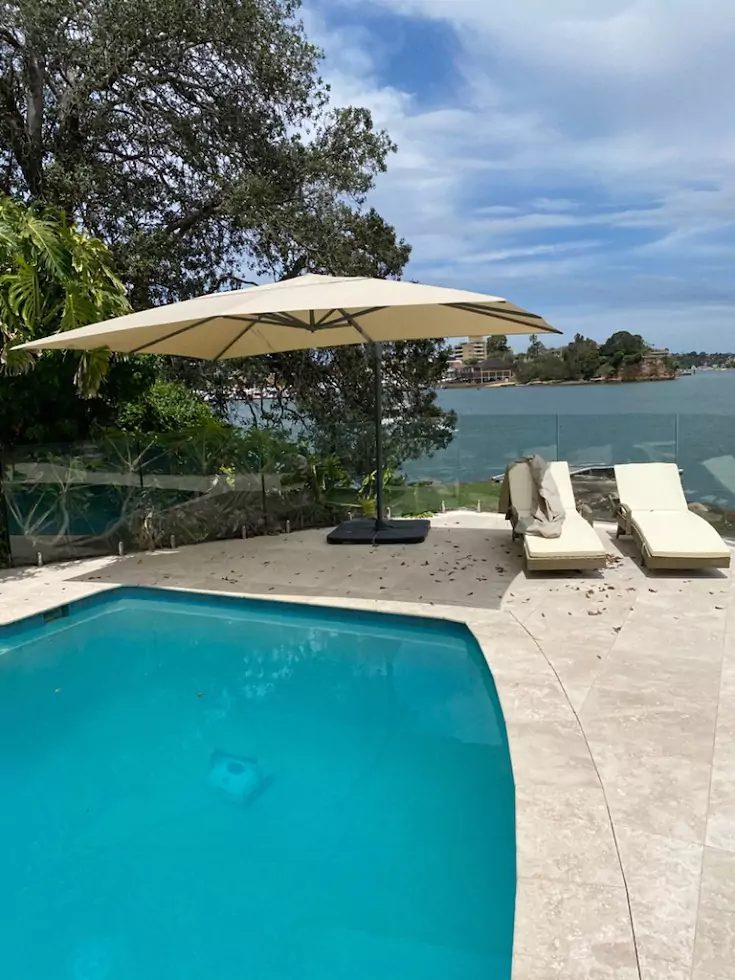
Pavers for Pool Surrounds
Pavers are a popular choice for creating pool surrounds due to their versatility and aesthetic appeal. They offer several advantages when it comes to designing a functional and visually pleasing pool area.
Pros of Using Pavers
- Variety of Design Options: Pavers come in a wide range of shapes, sizes, colors, and textures, allowing you to create a custom look for your pool area. Whether you prefer a sleek and modern design or a more rustic and natural feel, there are pavers to suit every style.
- Durability: Pavers are known for their durability and ability to withstand heavy foot traffic and outdoor elements. They are resistant to cracking and fading, making them a long-lasting option for pool surrounds.
- Easy Maintenance: Pavers are relatively low-maintenance compared to other pool surround materials. They can be easily cleaned with water and mild detergent, and any damaged or stained pavers can be replaced individually without affecting the entire pool area.
- Safety: Pavers are designed to be slip-resistant, providing a safer surface for walking around the pool. They offer better traction compared to smooth surfaces like tiles or concrete, reducing the risk of accidents caused by wet feet.
Cons of Using Pavers
- Installation Complexity: Installing pavers for pool surrounds can be more complex compared to other materials. It requires proper excavation, leveling, and the use of base materials to ensure a stable and even surface. It is recommended to hire a professional landscaper or contractor with experience in paver installation to ensure a successful outcome.
- Cost: Pavers can be more expensive upfront compared to some other materials, such as concrete. However, their durability and aesthetic appeal often make them a worthwhile long-term investment.
- Heat Absorption: Depending on the color and material of the pavers, they may absorb and retain heat, making them hot to walk on during sunny days. To lessen this, consider choosing lighter-colored pavers or using shading options like umbrellas or pergolas to provide relief from the heat.
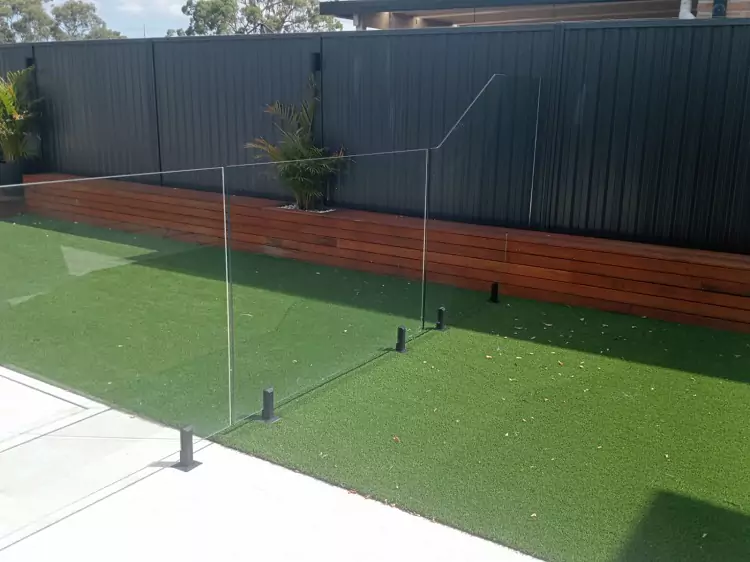
Factors to Consider
When deciding between a deck and pavers for your pool surrounds, there are several important factors to consider. These include looks and style, durability and maintenance, as well as safety and slip resistance.
Visual Impact and Style
The choice between a deck and pavers can significantly impact the overall looks and style of your pool area. A deck, often made of timber or composite materials, can create a warm and inviting look. It offers a natural look that complements various landscape designs.
On the other hand, pavers come in a wide range of materials, shapes, and colors, allowing for more design flexibility.
Whether you prefer a sleek and modern appearance or a traditional and timeless look, pavers can be customised to match your desired style.
Durability and Maintenance
Durability and maintenance are crucial factors to consider when selecting the material for your pool surrounds. Decks made of high-quality hardwood or composite materials can withstand outdoor elements and resist rotting, warping, and fading.
Remember, decks will require regular maintenance, such as cleaning, oiling, staining, or sealing, to keep them in optimal condition.
Pavers, on the other hand, are known for their durability and longevity. They are resistant to cracking and can withstand heavy foot traffic and exposure to the elements. Pavers also require minimal maintenance, typically limited to occasional cleaning and sealing to preserve their appearance and prevent weed growth between the joints.
Safety and Slip Resistance
Safety is of utmost importance when it comes to pool surrounds and wet areas. Both decks and pavers can provide a safe and slip-resistant surface when properly installed and maintained. However, certain materials and textures have better slip resistance than others.
For decks, selecting a material with a textured surface or adding non-slip coatings can enhance safety. Pavers offer natural slip resistance due to their textured or patterned surfaces. It’s essential to choose pavers with a slip-resistant finish to minimize the risk of accidents, especially in wet conditions.
When considering safety, it’s also important to think about the area surrounding the pool. Proper drainage and appropriate installation techniques can help prevent water buildup and improve overall safety.
Assessing Your Needs and Preferences
Consider the following factors to help determine which option is better suited for your pool surrounds:
- Aesthetics and Style: Think about the overall look and feel you want to achieve. Decks can provide a more natural and rustic appearance, while pavers offer a wide range of design possibilities with various colors, textures, and patterns. Consider the architectural style of your home and the surrounding landscape to ensure a cohesive aesthetic.
- Durability and Maintenance: Evaluate the level of maintenance you are willing to commit to. Decks, especially wood decks, may require regular sealing, staining, and repairs to withstand the elements. Pavers, on the other hand, are generally low maintenance, but may require occasional cleaning and releveling of the surface.
- Safety and Slip Resistance: Safety is paramount, especially around a pool area where water is present. Consider the slip resistance of each option. Decks can become slippery when wet, but certain materials and finishes can enhance traction. Pavers provide a more textured and slip-resistant surface, reducing the risk of accidents.
Consulting with Professionals
To make the final choice, we can help with assessing the location of your pool. If your pool is going to take a beating with intense sun and UV – A large timber deck may not be the best solution for a low maintenance or long lasting pool surround.
If you have the possibility of falls and injuries with young children or seniors – Pavers may not be the best solution and a timber deck or alternative surface should be considered.
Oasis Landscaping Projects can guide you through the selection process, offering insights on the best materials, installation techniques, and maintenance practices for both decks and pavers.
Our expertise and years of landscaping experience can help you navigate the choices and ensure that your pool surrounds meet your expectations in terms of aesthetics, functionality, and longevity.
Remember, there is no one-size-fits-all answer to what pool surround is going to be the best option for you and your swimming pool.
Get in touch today. We offer free quotes and friendly advice.

